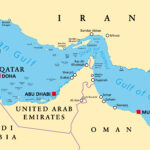A lot of Floridians have had their homeowners insurance company — call it XYZ Florida Insurance — increase their premium because of huge losses. Weeks later, the residents see XYZ Insurance USA, based in Connecticut, report a big profit.
How’s that?
National insurers often carve out their Florida business into a separate company, insulating the parent company from losses in the hurricane-prone state.
The Florida offshoots are known as “pup companies.” They’ve been allowed in Florida since 1996, four years after Hurricane Andrew caused $30 billion in damage. Companies were threatening to leave.
Charlie Crist, Florida’s attorney general and gubernatorial candidate, has argued that the practice should end. He said national companies ought to spread the risk to other states to help keep Florida homeowners’ rates lower.
“That’s a shell game,” Crist said. “They have this fiction they create — a legal fiction that we can make illegal — that they will set up this separate Florida corporation which then gives them the opportunity to go to the appointed insurance commissioner and say, ‘Look at the horrible losses we’ve had’ … completely ignoring the fact that their national parent has been making billions and billions.”
Not that simple
Some say it’s not that simple. Insurance regulators and company officials maintain that if the pups were shut down, some firms would pull out, and the shareholders of national firms would sue.
“The reason that a company like Allstate needs to have the ability to operate a separate and distinct entity … is that otherwise we wouldn’t be able to write home insurance policies in Florida,” said George Grawe, executive vice president at Allstate Floridian, which is separate from national Allstate.
Grawe noted that before 1992, the parent Allstate had policies in Florida, but “the losses sustained as a result of Hurricane Andrew nearly caused Allstate to become insolvent.” Most large insurance companies have similar fears.
“A company cannot allow one state to threaten its solvency,” said Sam Miller, spokesman for the Florida Insurance Council, which represents many property insurers.
After Allstate Floridian took a big loss from the 2004 hurricanes, its parent company pumped $300 million into it and provided backup again in 2005. Others have done the same, Miller noted.
Insurers also note that they are regulated at the state level, not nationally. They say it would be difficult for a company to go before a state insurance regulator in Michigan, for example, to argue it needs higher rates there to make up for losses in Florida.
Or, as Grawe put it, “The rate in the state is dependent on the loss you have in that state.”
Was this article valuable?
Here are more articles you may enjoy.


 Cuts to Funding Mean Risks Will Pivot in Human Services Market
Cuts to Funding Mean Risks Will Pivot in Human Services Market  Resilience: Cyber Risk Shifts From Disruption to Long-Tail Losses
Resilience: Cyber Risk Shifts From Disruption to Long-Tail Losses  State Farm Inked $1.5B Underwriting Profit for 2025 but HO Loss Persists
State Farm Inked $1.5B Underwriting Profit for 2025 but HO Loss Persists  Marine Insurers Cancel War Risk Cover as Iran Conflict Escalates
Marine Insurers Cancel War Risk Cover as Iran Conflict Escalates 


